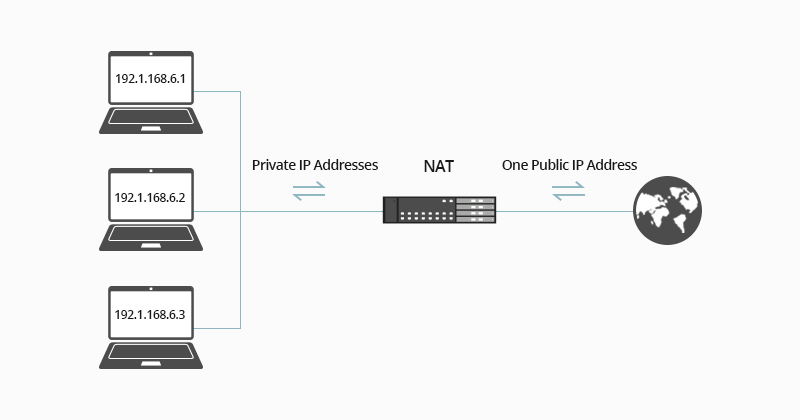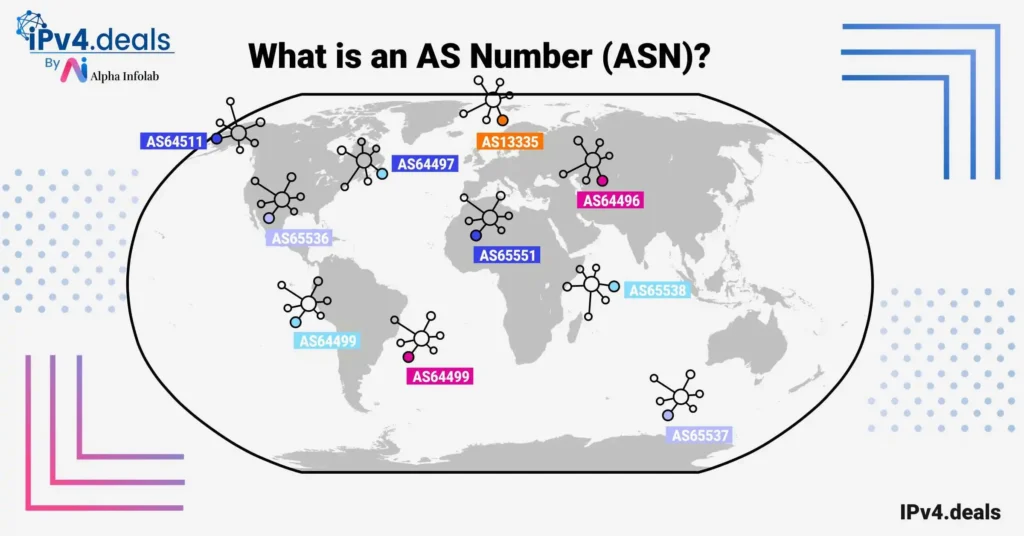As digital communication expands and becomes more complex, efficiently managing network resources has turned into a crucial task for many businesses and corporations. The capacity to manage, monitor, and control internet protocol (IP) addresses can have a vital role in ensuring fast, robust, and secure connectivity across networks. This is where IP Address Management (IPAM) comes into the picture.
Table of Contents
A Brief on Internet Protocol Addresses (IP)
An Internet Protocol address (IP address) is a unique number linked to all online activities you perform. Every machine on a network, from your laptop to the printer, has an individual IP address that network devices use to identify each other. There are two types of IP addresses currently in use: Internet Protocol version 4 (IPv4) and version 6 (IPv6). Dealing with and managing these addresses efficiently is the basis of IPAM.
What is IPAM (IP Address Management)?
In essence, IP Address Management is essentially the administration of network infrastructure tasks related to the allocation, tracking, and management of IP space on a network. By maintaining a detailed inventory of used and available IP addresses, IPAM solutions can reduce the chance of errors caused by manual interventions and increase the efficiency of IP allocation.
Why IPAM is Necessary
The significance of IPAM escalates due to the substantial role IP addresses play in network connectivity. IPAM can help tackle potential issues like IP address conflicts, system misconfigurations, and inefficiencies in IP space utilization. Consequently, efficient IPAM is critical for reliable network performance and resource optimization.
Scalability
With the rise of IoT and expanding businesses, the demand for IP addresses always scales upward. Ensuring scalability and avoiding potential overlaps becomes a tedious task that can be mitigated with a robust IPAM solution.
Network Health
Mismanaged IP addresses can lead to weakened network performance, security vulnerabilities, or access issues for users. Efficient IPAM informs timely about IP address conflicts, depleted address pools and can help in managing subnet segmentation and access control policies, thereby improving network health.
Compliance
As the global regulatory landscape evolves, businesses must adhere to strict data privacy and IT governance laws. Keeping track of the allocation of IP addresses and logging when, where, and why each IP address was used can help businesses comply with regulations and provide essential data for auditing purposes.
Cost Reduction
By automating IP address allocation and DNS record management, IPAM can reduce the time and resources required to manage IP addresses, thus lowering operational costs
Efficient Use of IP Addresses
IPAM helps organizations make better use of available IP addresses by identifying unused or underutilized IP addresses, which can help reduce the need for additional IP addresses
Centralized Management
IPAM provides a centralized approach to managing IP addresses, simplifying the process and reducing the risk of manual errors
Troubleshooting
IPAM enhances the ability to quickly identify and resolve network issues, which can improve uptime and prevent user frustration
Elements of IPAM
Discovery and tracking
IPAM helps in collecting significant data to maintain an accurate and up-to-date view of the IP address space, including which addresses are in use, who is using them, and the purpose of the specific usage.
Allocation and classification
From the procurement of IP Addresses to their allocation, and eventual de-allocation, IPAM oversees the lifecycle of an IP address. It supports efficient utilization by ensuring that specific sets of IP address blocks are reserved for certain applications and networks.
Conflict resolution
IPAM assists in avoiding and swiftly resolving IP address conflicts—when multiple devices end up with the same IP address unintentionally. This is usually facilitated by dynamic alerting systems in IPAM solutions.
What are the challenges of implementing IPAM
Implementing IPAM systems comes with several challenges that organizations need to navigate to ensure successful deployment and operation. These challenges can range from technical and operational issues to financial and strategic considerations. Here are some of the key challenges as outlined in the provided sources:
- Complexity and Scalability: Large-scale, comprehensive IPAM solutions, especially those used by very large companies or service providers, can be complex to deploy and manage. They often require dedicated applications and databases, as well as DNS and DHCP servers at remote sites, which can add to the complexity and cost.
- Cost: Dedicated IPAM systems typically require significant upfront investment as well as ongoing investments in skilled personnel to manage the system. This can be a barrier for some organizations, particularly smaller ones with limited budgets.
- Integration with Existing Systems: Implementing IPAM can involve integrating it with existing DNS and DHCP systems, which can be challenging, especially if these systems are decentralized or based on different technologies like Microsoft DNS and BIND. Ensuring seamless integration is crucial for the effective management of IP addresses but can be difficult to achieve.
- Data Quality for AI-based Solutions: For AI-based IPAM solutions, the quality of data is crucial. High-quality, comprehensive data is needed to train AI algorithms effectively. Collecting and managing this data can be a significant challenge, especially in complex network environments.
- Cost of AI-based Solutions: Developing and implementing AI-based IPAM solutions can be costly. While these solutions can offer long-term benefits such as increased efficiency and cost savings, the initial investment may be substantial.
- Integration of AI with Existing Network Systems: Integrating AI-based IPAM solutions with existing network systems can be challenging. It often requires custom integration efforts or the use of APIs, which can be complex and time-consuming.
- Decentralized Network Infrastructure: IPAM tools alone may not address the underlying issues associated with decentralized network infrastructure systems. This can lead to challenges in achieving a unified and efficient IP address management strategy.
- Manual Documentation and Errors: Before implementing an IPAM solution, many organizations rely on manual documentation of IP address usage, often in spreadsheets. This approach is prone to errors and overlaps, which can bring down the network. Transitioning from manual to automated systems can be challenging and requires careful planning.
- Organizational Politics: In some cases, organizational politics can impact the implementation of IPAM solutions. Different groups within a network team may compete for resources, prestige, and control over network architectures, which can complicate the deployment of a unified IPAM system.
- Training and Knowledge Transfer: Implementing an IPAM solution requires training network administrators and staff on best practices and the specific functionalities of the IPAM system. Ensuring that knowledge is effectively transferred and that staff are comfortable with the new system can be a challenge.
- Security and Access Control: Ensuring the security of the IPAM system and controlling access to sensitive IP address data is crucial. Implementing strong authentication mechanisms and encrypting sensitive data are necessary but can add to the complexity of the system.
In Summary
To sum up, an effective IP Address Management strategy can empower businesses with continuity and optimization of their networks. With IPAM, organizations can stay ahead of the curve in network monitoring and ensure a smooth experience for their network users. As larger IP address pools and network complexity become increasingly standard, the importance of proficient IPAM will continue to rise.
Frequently Asked Questions
What is IPAM?
IP Address Management (IPAM) is the administration of network infrastructure tasks related to the allocation, tracking, and management of IP space on a network. It helps in maintaining a detailed inventory of used and available IP addresses, reducing errors caused by manual interventions and increasing the efficiency of IP allocation.
Why is IPAM important for businesses and networks?
IPAM is crucial for ensuring reliable network performance, resource optimization, and scalability. It helps tackle potential issues like IP address conflicts, system misconfigurations, and inefficiencies in IP space utilization. Additionally, IPAM helps in compliance with data privacy and IT governance laws by tracking the allocation and usage of IP addresses.
How does IPAM assist in maintaining network health?
IPAM provides timely information about IP address conflicts, depleted address pools, and aids in managing subnet segmentation and access control policies. By efficiently managing IP addresses, IPAM ensures improved network performance, reduced security vulnerabilities, and consistent user access.
What are the key elements of IP Address Management?
The primary elements of IPAM include Discovery and Tracking (maintaining an up-to-date view of the IP address space), Allocation and Classification (overseeing the lifecycle of an IP address), and Conflict Resolution (avoiding and resolving IP address conflicts through dynamic alerting systems).
How to use IPAM?
To effectively utilize IPA, start by installing and configuring the IPAM software, ensuring it’s integrated with your network’s existing DHCP and DNS services. Next, run a network scan using IPAM to identify and document all active IP addresses and their associated devices. This step is crucial for creating a comprehensive map of your network’s IP usage. Once the setup is complete, utilize IPAM’s management tools to assign and manage IP addresses, keeping track of allocation, availability, and usage. Additionally, set up monitoring to continuously watch over IP status and to catch any issues like address conflicts or unauthorized usage early. Finally, implement automation within the IPAM system to enforce your network’s IP allocation policies automatically, ensuring efficient and error-free network management.





